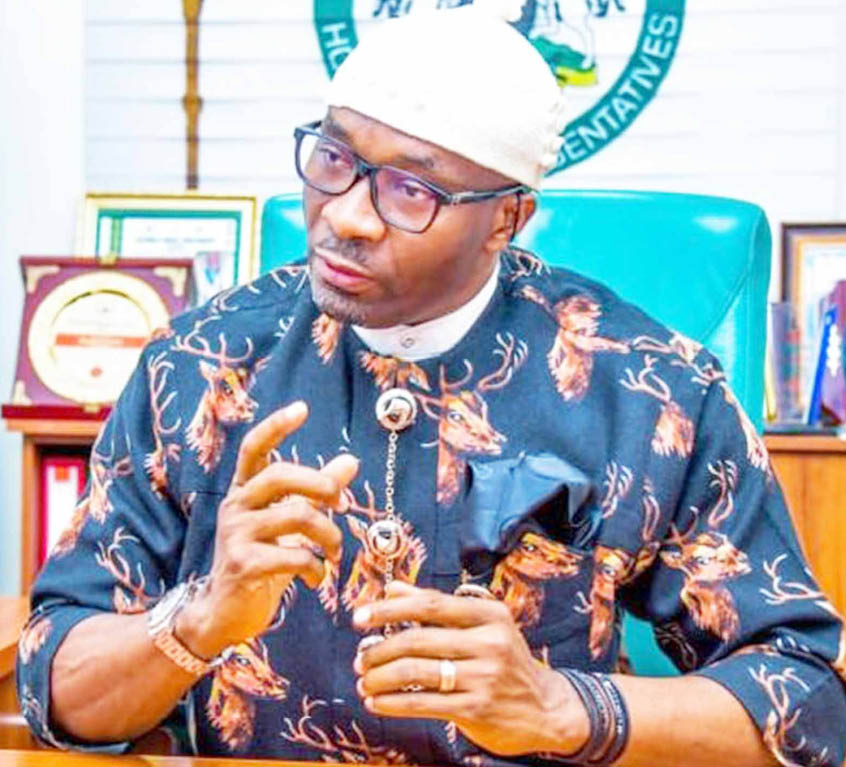Kalu seeks WTO’s support on Nigeria’s primary products export
The Deputy Speaker of the House of Representatives, Benjamin Kalu, has solicited the support of the World Trade Organization (WTO) in boosting the export of primary products from Nigeria and Africa in general. He made the call when he visited the Director-General of the WTO, Nigeria’s Dr. Ngozi Okonjo-Iweala, in Geneva on the sidelines of […]

Benjamin Okezie Kalu
The Deputy Speaker of the House of Representatives, Benjamin Kalu, has solicited the support of the World Trade Organization (WTO) in boosting the export of primary products from Nigeria and Africa in general.
He made the call when he visited the Director-General of the WTO, Nigeria’s Dr. Ngozi Okonjo-Iweala, in Geneva on the sidelines of the ongoing 148th assembly of the Inter-Parliamentary Union (IPU) in Switzerland, a statement by his Chief Press Secretary, Mr. Levinus Nwabughiogu, said on Tuesday.
Kalu who accompanied the Senate President and leader of the Nigerian delegation to the IPU assembly, Senator Godswill Akpabio, to the headquarters of WTO, raised concerns over the reduction in the export of primary products from Africa to other parts of the world.
The Deputy Speaker lamented that most African exporters of agricultural products encounter challenges marketing them due to aflatoxins that come in contact with them before reaching their destinations, especially within the framework of the African Growth and Opportunity Act (AGOA) which provides the said guaranteed duty-free treatment to goods of designated sub-Saharan African countries.
AFCON: Tinubu, Atiku, Kalu, others hail Super Eagles resilience, Nigerian spirit
Chinese who killed lover in Kano sentenced to death
Aflatoxins are various poisonous carcinogens and mutagens that are produced by certain molds, particularly the Aspergillus species.
Kalu therefore solicited the help of the WTO to set up centres in Africa for the treatment of the primary products packaged for export.
Responding to the WTO DG, Dr Okonjo-Iweala, said the organisation is aware of development and ready to assist countries in implementing their respective protocols on the issue.
She said, “At the WTO, we have been heavily promoting something we call re-globalization. We are trying to persuade supply chains of companies located outside Africa; we are trying to tell them that this is also a good place. WTO is very much aware.
“Many of the rules are built based on our rules. So, we have an interest in keeping in touch and making sure any country that wants to request our help to implement their protocols and so on will be able to do that.
“And we hope it will take off in a good way. Now, one big thing we have to watch is, we cannot all trade the same thing to each other. We are growing primary products. We are not going to trade cocoa to Cote D’Ivoire; we can trade oil because most of them want oil but we don’t just want to trade that.”
